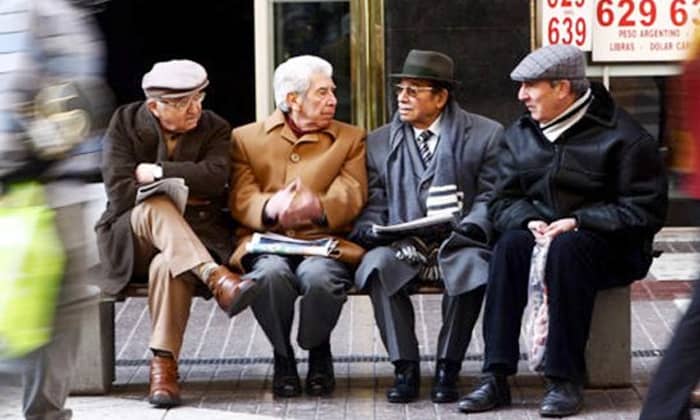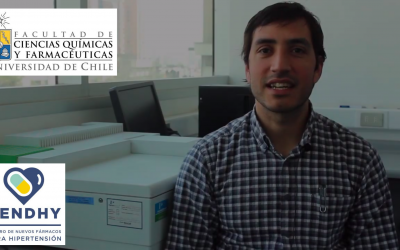In our country, adults over 65 years represent 11.4% of the total population (INE 2017) and constitute one of the risk groups with the highest mortality from coronavirus. Unfortunately, so far the lethality of COVID-19 in Chile has affected only older adults. The severity of the disease caused by the virus in this age group is explained by the wear and tear on their immune system and the presence of multiple underlying chronic diseases.
The conjunction of more than one chronic condition causes 90% of the Chilean population to consume at least 1 medication on a regular basis, and almost 40% take 5 or more a day for their various treatments (ENS 2016/2017). The main comorbidity in patients infected with the virus is hypertension (approximately 17%), a chronic condition that affects about 27.3% of the Chilean population (Yang et al., 2020; GES 2018 Guide).
COVID-19 causes decompensation of the existing pathology, and is mainly manifested by severe respiratory complications that require hospitalization and assistance from instruments such as artificial respirators. Older adults infected with this new coronavirus, who consume antihypertensives from the Losartan and Enapril family, develop more severe respiratory symptoms, pneumonia, acute respiratory failure, kidney failure and can even lead to death (WHO, 2020).
For this reason, emphasis has been placed on extreme prevention that older adults and their environment must adopt, especially if they suffer from any chronic disease, which translates into intensifying daily hygiene measures and the call to stay at home to avoid the probability of contagion. Due to the rapid advance of the virus in Chile, the government decreed this Wednesday, March 25, the total quarantine measure in 7 communes in the metropolitan region, where the largest number of confirmed cases of COVID-19 have been concentrated.
In addition to the obligation of isolation, older adults undergoing treatment for a chronic disease are instructed not to abandon their medication, as this could have even more serious consequences. Dr. Jorge E. Jalil, cardiologist specialized in Internal Medicine at the Pontificia Universidad Católica, and principal investigator at CENDHY (Center for new drugs for hypertension) points out that: “In relation to hypertensive patients who are currently undergoing treatment with antihypertensive drugs , the recommendation is to continue with the usual drugs. ”The academic explains that“ there is no clinical evidence to advise a modification or a suspension of these drugs in hypertensive patients against the spread of COVID-19”.
The guideline of Dr. Jalil is framed with the call of international scientific societies such as the European Society of Hypertension, the Spanish Society of Hypertension, the American Heart Association, the Society of Heart Failure of the United States, the American College of Cardiology, the College American Physicians, the Canadian Hypertension Society, the Canadian Cardiovascular Society, the International Hypertension Society and the British Hypertension Society.
While it is very important that older adults stay physically healthy during the crisis period, attention to their mental health is equally relevant. The accumulation of tragic and alarmist news about coronaviruses in the media can affect the total quarantined population emotionally. The report of deaths in Chile and the images of the parade of military vehicles loaded with coffins through the streets of Italy are a clear example of the type of content to which they are exposed daily.
In this regard, Dr. Martínez points out that “open television is the most affordable means for them to stay informed and entertained, so the challenge of the media is to have a wide grill, avoiding that in this case everything is focused in the coronavirus ”.
On the other hand, psychiatrist and associate researcher of the Advanced Center for Chronic Diseases (ACCDiS), Pablo Toro, indicates that “the more crisis a person has lived with more resources, the more they will have to face difficulties, such is the case of older adults”. He adds “the community has a challenge there that consists of assisting them in carrying out activities such as paperwork, purchasing medicines and merchandise to prevent them from leaving and being infected”.
Toro stresses “it is also important to accompany our older adults socially at a distance, such as making phone calls, video calls or visiting them through a window.” It is important to emphasize that the call to isolation is to maintain a physical, not an emotional distance, which means that the population at risk of COVID-19 should not be abandoned, particularly older adults while trying to protect them through these measures decreed by the authorities.
Article published in https://www.accdis.cl/recomendaciones-para-atender-la-salud-integral-de-adultos-mayores-en-tiempos-de-cuarentena-total-por-coronavirus/ y en https://latinews554726580.wordpress.com/2020/04/02/recomendaciones-para-atender-la-salud-integral-de-adultos-mayores-en-tiempos-de-cuarentena-total-por-coronavirus/





0 Comments